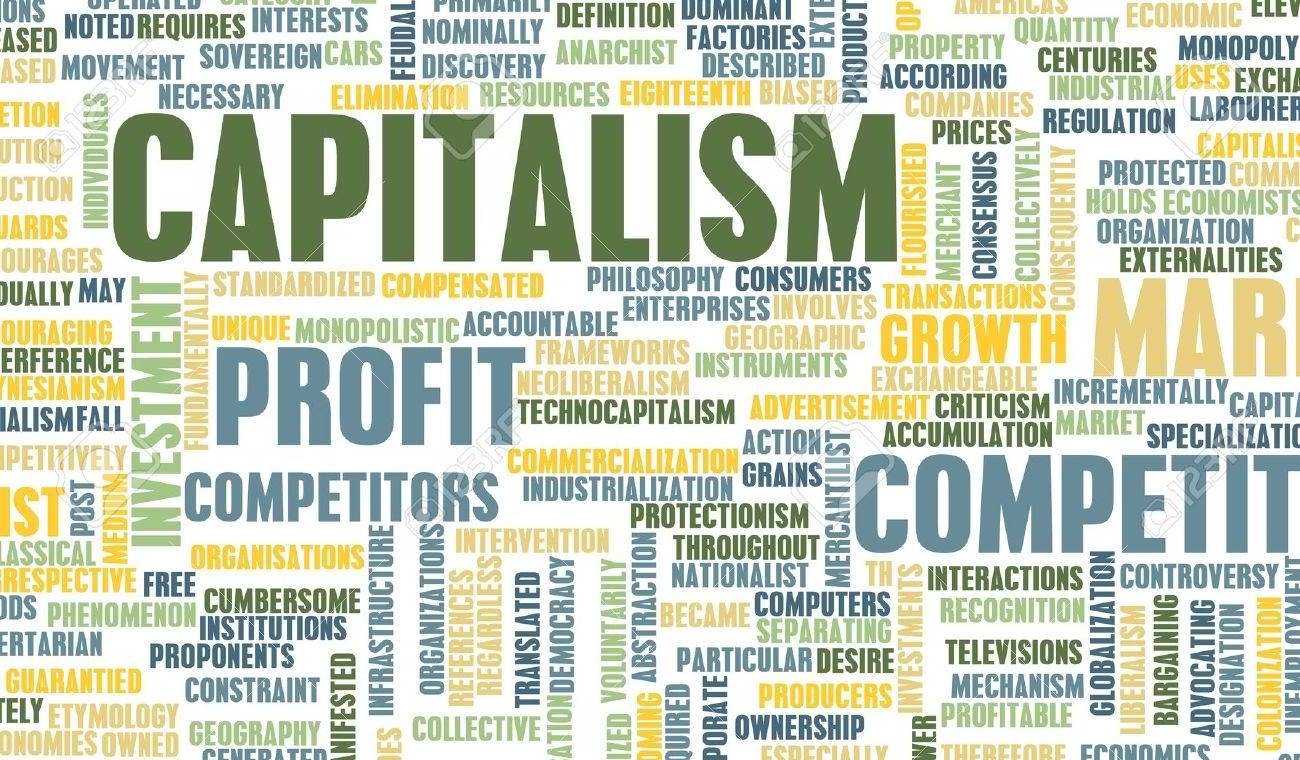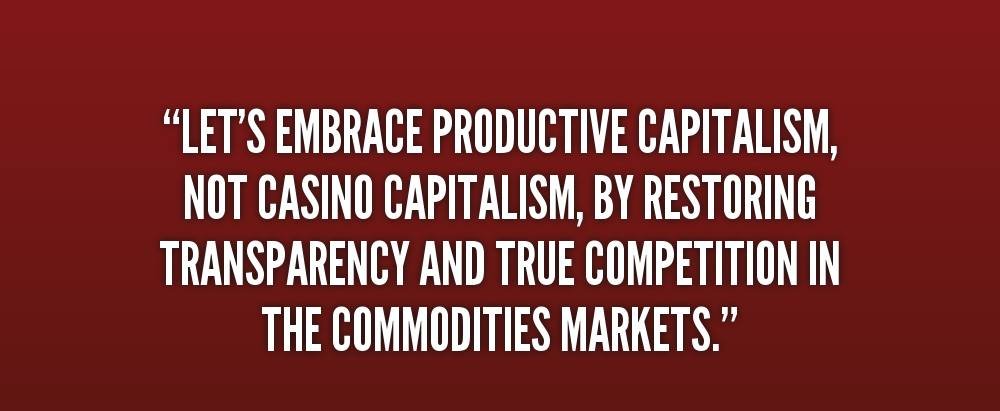The Undeniable Progress of the Philippines under Capitalism
Thanks to America for bringing in the country the best system ever devised. Capitalism has dramatically lifted up the Philippines in many ways. While maintaining the political balance to ensure the rights of every citizen in participating in the free-trade market system, the Philippine government has liberalized its economic institution by means of free competition, allowing the citizens to loan money to start businesses and help contribute to the Philippine economy.

On the other side, multinational corporations have gained access to the Philippine economy and provided jobs for the Filipinos. These competitions trigger the economy to be more active and to be more productive on the side of the business firms to provide social services and jobs for the jobless Filipinos. The more active these businesses become, the more jobs it can offer to the country.
Although some of the core components of capitalism were already applied to the Philippine economy, they were made selective. During the Spanish colonization, it was only them and the foreign investors who enjoyed economic advancement of the free-trade system, land privatization, and the early form of globalization, not even yet officially termed then. The Suez Canal was opened so that the means of transportation of the goods and products between Spain and other Western profit seekers and the Philippines would be a lot accessible and less-time consuming, but this early development did not benefit the Filipino people. It was only the colonizers who prospered in this era using the Philippine exploited natural resources.
When the Americans came, it was radically changed. It was in the face of democracy. The Philippine economic system was introduced openly to the Filipinos. Capitalism was operated as it should be. American capitalism was introduced in the country. Filipinos were allowed to gain private control of the means of production. They even enjoyed the import-export activities together with the Americans. Laws were made to ensure the economic partnership between the US and the Philippines.
For instance, Filipino businessmen could ship their products to the US without paying taxes as well as the Americans could also sell theirs to the Philippine market. This development enabled the Filipinos to promote their local products in the home country and also abroad. The Philippine became known throughout the world because of the US.
Philippine Engagement in Globalization
The Philippines is a member of the United Nations (UN). The American system of capitalism in the country gave the Philippines the confidence to participate in the global political union. The country is also part of the Association of Southeast Asian Nations (ASEAN) that works as a partnership for a free-trade economic system, allowing the Southeast Asian countries to deal each other in economic matters. Without the American teachings of capitalism of the country, it would not happen because it needs an open-market system in a certain country for it to enter to the world of globalization.
Economic Expansion of the US to the Philippines
Most of the large-scale mining corporations, plantations, telecommunication companies, call-center industries, high-technologies, and many more operating in the country are American-owned business firms. They are the most responsible for the provision of jobs for the Filipinos, assistance of the social services given by the government to the people, and for the national security. Capitalism has modernized the country by all means.
They set up CCTVs for national security upgrade, road widening projects, accessible and affordable communication and transportation, establishment of schools and universities, and others. The Philippine government was not able to provide them all to the Filipino people before the American innovation came into existence. It is the business that benefits the both sides, and for Americans, it is the democratic essence of capitalism.

The Filipinos' Right to Privatization
In the years since capitalism emerged in the country, the Filipinos have been given freedom to own the properties of their choice. The law has been made to ensure the right to property for the Filipinos with some regulations to follow to avoid exploitative acts of owning a property. In the business world, one can expand his/her own business and settle a branch to other places. The Filipinos have been enjoying this until today. With the right tax payment to the government and adherence of the rule of law, everything would be fine.
It gives individual progress to each of the Filipinos and liberalizes them from the control of the government and expand their own thinking and innovation to improve lives. It is a sort of freedom from a cage. In addition, it also pays the government back by contributing proper taxes and social services to the customers as rewards for loyalty. In fact, most of the social services given by the government to the people come from the funding of some of the private institutions in the country.
From Totally Agricultural to Industrial
Similarly to the Spanish trading system, the first wave of industrialization was not made available to the ordinary Filipino people. When the Philippine economy was still backward, the natives were dependent on feudalism with the agricultural land owned by the friars. Some early industries in the country were owned by foreign capitalists. Industrialization was just for the elites in the society. With the American capitalist system, the country was industrialized democratically.
Agricultural lands were commercialized, exceeding their thought capacity to generate profits. Business establishments were built. The local Filipino people took advantage of this demand to utilize the land into something profitable in the industrial world. While maintaining of the land from its agricultural state since it is still important in the Philippine economy, machineries were built to process the raw materials so that time consumption would be lesser to gain more profit. Heavy and light industries are currently available in the country.

With the combination of the abundant natural resources in the land and the technologies, the Philippine economy can now become competitive in the world. Capitalism is now in the heart of the Philippine economy as it can obviously be observed in its behavior, and no one is likely to transform it. With the current Philippine President who is now pursuing a greater trading partnership with the US because he knows the goodness of the plan for the economy of the Philippines. Americans, on the other hand, are never selfish. They share their own development to the country, and the Philippines is kind of grabbing such opportunity. And at the end, it is essence of capitalism --to share what is new to the other societies.
